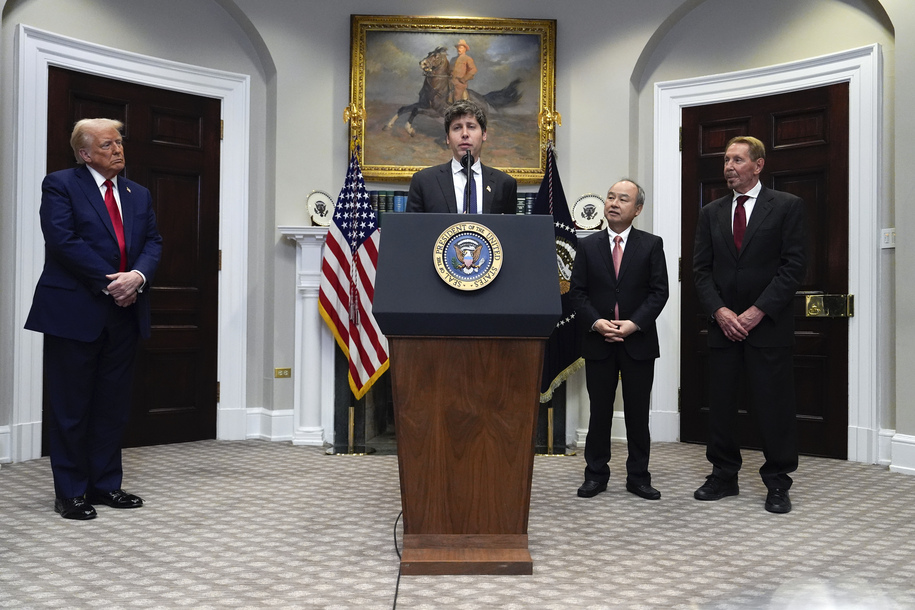At first glance, it seems like Silicon Valley executives have the perfect life, what with the unimaginable wealth and power and such. But what if they’re sad they don’t get to put on big boy pants and pretend they’re warfighters? What then, America?
Thankfully the Army has invented a way to give tech execs participation trophies—surely that is the best and most noble use of our armed forces.
A new Army initiative titled “Detachment 201: The Army’s Executive Innovation Corps” promises to “fuse cutting-edge tech expertise with military innovation.”
Will they do that by tapping 18F, the federal agency dedicated to working with other agencies on technology products, staffed by people with expertise in both government and tech? Heavens, no. Not since President Donald Trump disbanded that agency because Elon Musk thought it was too woke.
No, instead they will do it by making some tech execs part-time lieutenant colonels in the Army Reserve while retaining their current full-time jobs. Welcome your newest recruits: Andrew Bosworth, CTO of Meta; Shyam Sankar, CTO Palantir; Kevin Weil, CPO of OpenAI; and Bob McGrew, OpenAI’s former research chief and current advisor to Thinking Machines Lab.
The whole thing feels like nothing more than a make-believe outing meant to make some tech bros feel important. The Army already does these sorts of direct commissions, where civilians are directly appointed to officer positions. But that’s usually used for people wanting to serve in the medical corps, not for getting a pretend Army gig to steer federal contracts to your private company.
The Army announced the initiative the same day the four execs were sworn in, which makes it look a lot like they invented this “detachment” as a way to bring Silicon Valley moguls in-house without officially doing so. This way, the Trump administration didn’t have to appoint or hire any industry titans, and they didn’t have to give up their incredibly lucrative day jobs.
“Detachment 201” would look a lot less sketchy if the Army hadn’t only tapped executives from companies that have donated millions to Trump. OpenAI’s CEO Sam Altman dropped a million on his inauguration, as did Palantir CEO Alexander Karp and Meta. Palantir even went above and beyond, sponsoring Trump’s pathetic military parade.
These four execs were sworn in on June 13, and it only took until June 16 for the Defense Department to announce it had awarded a $200 million no-bid contract to OpenAI to “develop prototype frontier AI capabilities to address critical national security challenges in both warfighting and enterprise domains.”
Just in case this conflict of interest wasn’t blatant enough, Katrina Mulligan, former chief of staff to the Army secretary, posted more big news on LinkedIn Monday, announcing that, since being rewarded its $200 million contract, OpenAI is now bringing her on to run a new initiative, “OpenAI for Government,” which will supposedly “help accelerate the U.S. government’s adoption of AI.”
Similarly, Palantir has already been the recipient of more than $100 million in taxpayer dollars since Trump took office in January. And just last month, The New York Times published a detailed account of government use of Foundry, a Palantir tool for organizing and analyzing data. As everyone knows, this is because the Trump administration wants to create a unified master database of government data to better torment immigrants. But Palantir wants you to know it’s definitely not building a unified master database, and how dare you ask.
Meta, meanwhile, hasn’t yet reaped its rewards, but don’t worry—it’s getting there. The company is actively courting the military for contracts and has partnered with Palmer Luckey’s Anduril Industries to design, build, and field products for the military to “provide warfighters with enhanced perception and enable intuitive control of autonomous platforms on the battlefield.”
In other words, they’re building a VR helmet to sell to the military.
Notably absent from the list of Big Special Boys with Big Special Army Jobs is Musk and any of his companies. In the halcyon days of the Trump-Musk alliance, he was getting literal billions in government contracts, awarded with no oversight and no regard for the obvious conflict of interest.
SpaceX was on track to help build the Golden Dome missile shield, a Trump fixation and boondoggle that will not work but will nonetheless cost somewhere between $119 billion and $6.4 trillion. But now there’s nary a mention of SpaceX while Golden Dome missile shield partner Palantir’s star is rapidly ascending.
Clearly, Trump’s gratitude for the $250 million Musk spent to get him elected is now exhausted, in part thanks to their tacky, messy blowup, but also because Trump requires constant infusions of both money and fealty.
But other billionaires are eager to fill that void and ready to reap the riches. And, unlike Musk, they get to play soldier, too!

Leave a Reply Cancel reply